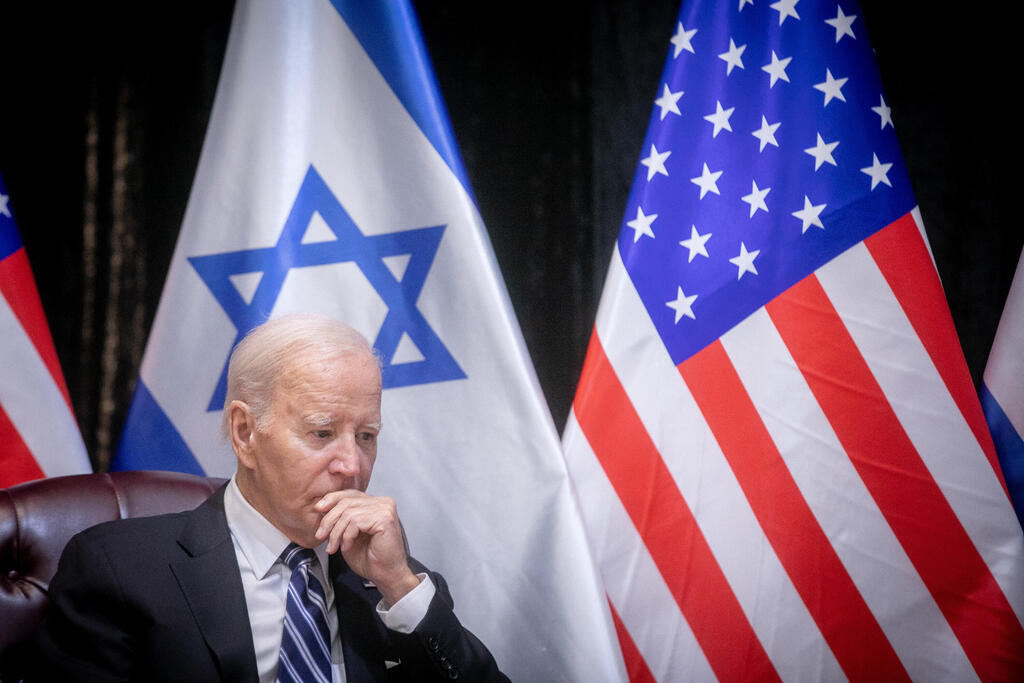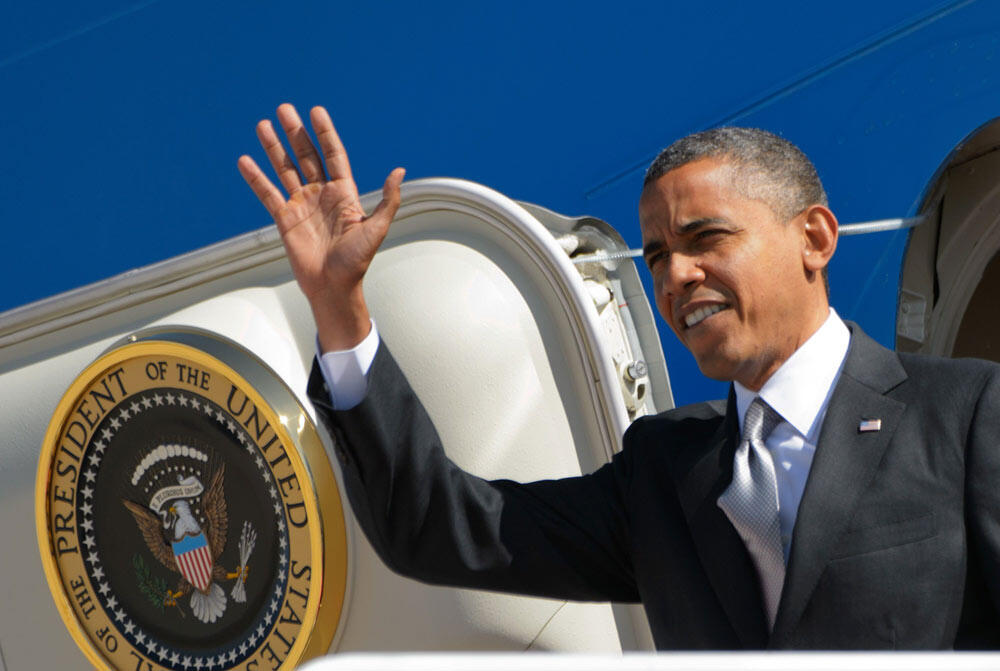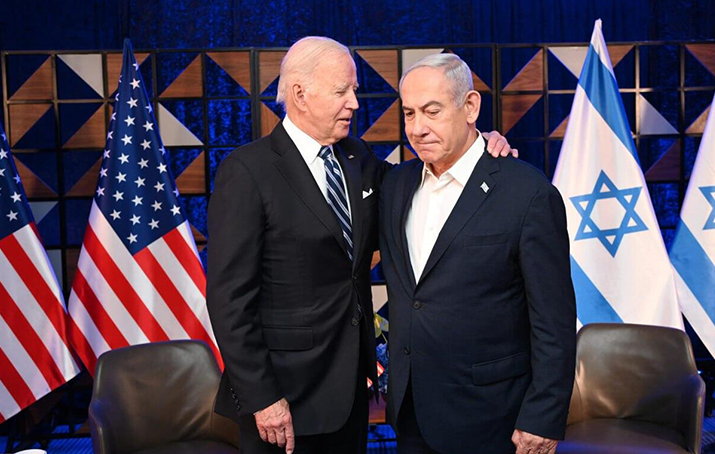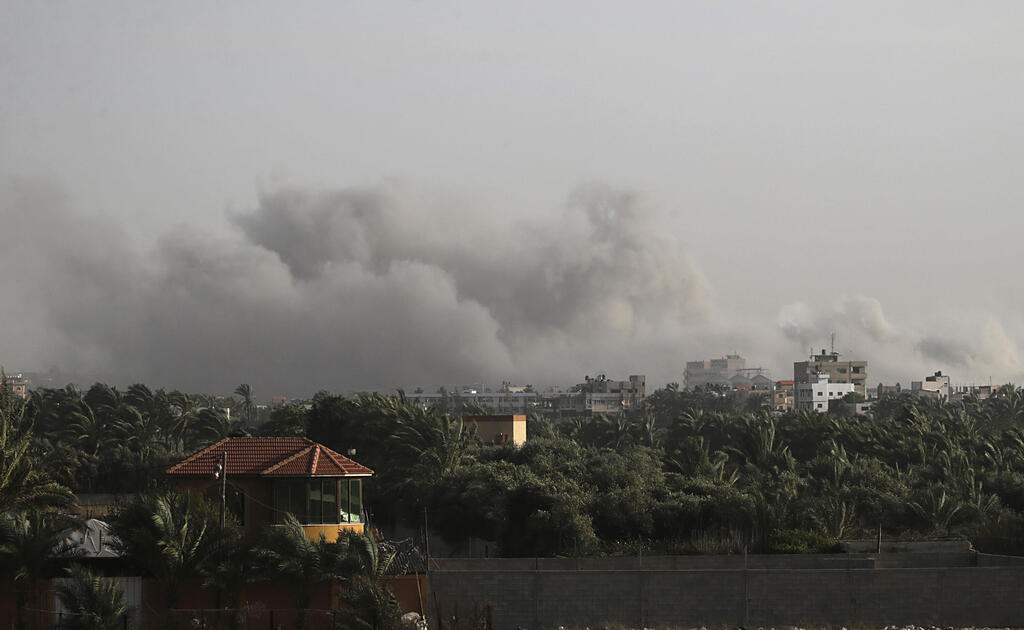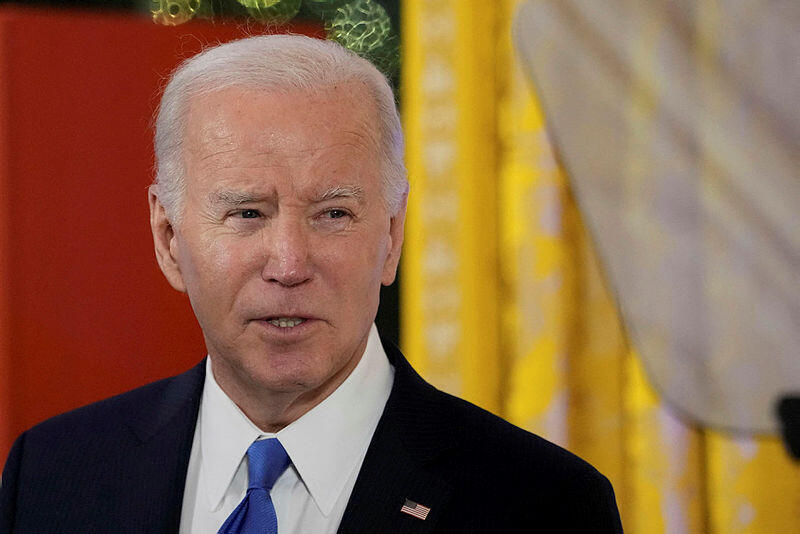In the wake of Hamas’ monstrous October 7 attack, U.S. President Joe Biden’s expressions of support for Israel in both words and deeds were immediate and unequivocal. Many observers have described the president’s position as “unprecedented.”
More stories:
- Sinwar blocking hostage deal/opinion
Historian Doug Rossinow commented in Time Magazine on November 29, “Biden seems to have pushed aside the strategic and political considerations that guided past American leaders’ responses to Israel’s wars. He joined himself at the hip politically with Netanyahu and echoed Israel’s talking points faithfully. “
Naturally, the question arises as to Biden’s motivations. It could be ascribed to the president often describing himself as a “Zionist.” Or as an instinctive moral revulsion over what Hamas has wrought. As he stated on October 10 at the White House: “You know, there are moments in this life — and I mean this literally — when the pure, unadulterated evil is unleashed on this world. The people of Israel lived through one such moment this weekend… Hamas stated purpose for being is to kill Jews. This was an act of sheer evil.”
However, a careful examination of the Biden administration’s steps in the wake of Hamas’ attack reveals an additional hidden, yet powerful, motive for his staunch backing of Israel.
Biden and his predecessor Barack Obama held the belief that Israel could undertake military steps that may surprise the U.S. and put it in a bind. Indeed, Israel was unique in the Middle East as the one state with both the mindset and means to potentially go berserk. Consequently, the only way to mitigate against a nightmare scenario in the area is to block Israel as the one actor where Washington has sufficient sway to allow it to exercise effective controls.
This underlying assessment was the main motivation behind President Barack Obama‘s push for an agreement to curb Iran’s nuclear program, known as the 2015 Joint Comprehensive Plan of Action (JCPOA). Today, it is clear that the main rationale for Obama’s drive to reach a deal with the mullahs was his administration’s growing alarm over the prospect of an Israeli preemptive attack on Iran’s expanding nuclear program which would have likely thrust the region over the brink.
Obama was not shy about his motives. In an August address that year at American University, he defended the Iran nuclear deal saying “Let’s not mince words. The choice we face is ultimately between diplomacy or some form of war. Maybe not tomorrow, maybe not three months from now, but soon.”
Now it was Biden’s turn to be unnerved by a growing consensus in Israel that after Hamas' October 7 attack, the country was at war with Nazis who are aiming to swoop in from multiple fronts and that "Never Again is Now." Suddenly, an assessment in Jerusalem that the very existence of the state may be at stake was on the table. In turn, the specter of Israel utilizing what then-Prime Minister Yair Lapid called in 2022, “other capabilities [which] keep us alive and will keep us alive as long as we and our children are here,” had become a reality.
There should be no doubt that Biden was fully aware of the strategic significance of this Israeli threat assessment. Indeed, in his October 10 statement, he all but endorsed it, yet sought to block the nightmare of Israel deploying its last resort weapons. The president said, “For 75 years, Israel has stood as the ultimate guarantor of security of Jewish people around the world so that the atrocities of the past could never happen again… We will make sure the Jewish and democratic State of Israel can defend itself today, tomorrow, as we always have.”
Undoubtedly, the conviction that Netanyahu's coalition has some “of the most extreme Cabinet ministers he's ever seen in Israel” as Biden stated last July added to these fears.
Worse yet, the months of displayed White House animosity toward Netanyahu could have been interpreted in Jerusalem as being isolated from its main ally which could reinforce the perception that Israel has no choice but to resort to extreme measures to rescue itself from annihilation.
As a result, the Biden administration was quick to undertake several interrelated steps, all aimed at preventing an Israeli act of desperation.
First, the U.S. dispatched carrier strike forces to the Mediterranean and the Persian Gulf areas, as well as additional air and ground reinforcements, and issued stern warnings to Hezbollah and Iran not to take advantage of Israel’s predicament. In effect, the U.S. provided Israel with a strategic umbrella to enable the IDF to act to remove the Hamas threat without being diverted elsewhere or facing a full-scale assault on the country from multiple directions.
Second, immediately the U.S. launched massive air and sealifts of conventional arms so as to prevent Israel from running out of means to fight a conventional war and allow the IDF to accomplish its war objectives.
Third, the U.S. moved to defend certain Israeli strategic sites. In this regard, it may be noted that on October 28, the Qassam Brigades, the armed wing of Hamas, announced they fired rockets at the Israeli nuclear reactor at Dimona, a claim which was also highlighted by the Iranian media.
Fourth, Biden himself hurried to Jerusalem to express full support and dispel any notion that Israel is alone against a multi-front offensive. As historian, Rossinow put it “Most dramatically, [Biden] flew to Israel and sat as part of Prime Minister Benjamin Netanyahu’s war cabinet…. Biden has gone where no other U.S. president ever has gone during one of Israel’s wars—not only physically but also politically and strategically.”
Fifth, simultaneously the Biden administration sought tight controls over Israel’s conduct of the war from the get-go, in line with its underlying perception that Israel is potentially a crazed actor. (This concern was likely reinforced given the devastation inflicted on Gaza.)
Thus, since October 7, a virtual flood of high-level administration and U.S. military officials have been arriving in the country to “be briefed” about and “advise” Israel on the progress in the fighting. While often expressing Washington’s “ironclad” commitment to Israel’s security, the Americans are especially concerned over the prospect of escalation in the north which persists as long as the Gaza campaign lasts and Hezbollah’s consequent harassment attacks continue.
Biden is also worried that after dismantling Hamas in Gaza, the IDF will turn to deal with Hezbollah or even undertake to confront Iran directly. Such a scenario could lead to an uncontrollable explosion. No wonder that Washington is trying to diffuse a possible escalation against Hezbollah by launching a diplomatic initiative vis-a-vis the Lebanese government.
Finally, once Biden became convinced the beefed-up U.S. regional deployments are effective in deterring Hezbollah and Iran from intervening in full force in the conflict, he became more critical of the IDF’s conduct of the war both for domestic political reasons but also to assure Israel does not misinterpret his staunch initial support as meaning it has a free hand.
To prevent a feared regional war with untold consequences, the administration also pressed Jerusalem not to retaliate for missile and drone attacks launched by Iran’s proxy—the Houthi government in Yemen—against targets in southern Israel. Instead, for the first time, U.S. Navy ships stationed in the Red Sea have been tasked with intercepting the Yemeni fire to keep Israel out.
The conclusion seems warranted that while fortunately still in the basement, the shadow of Israel’s nuclear option has proven its worth as a major bargaining chip vis-a-vis its main ally. Its clandestine “presence” assures the continued arms supplies and strategic support of the U.S. At the same time, it has increasingly caused Washington to seek to exert tighter controls over Israel’s defense and foreign policies.
Further, in the aftermath of the Holocaust-evoking October 7 scenario, the necessity to prevent Iran from acquiring nuclear weapons has categorically become more urgent for both Israel and the United States.
- Dr. Avigdor Haselkorn is a strategic analyst and the author of books, articles and op-eds on national security issues.



